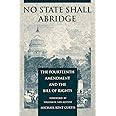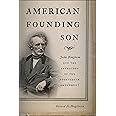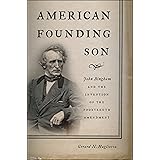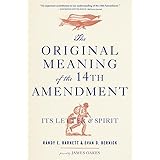
Enjoy fast, free delivery, exclusive deals, and award-winning movies & TV shows with Prime
Try Prime
and start saving today with fast, free delivery
Amazon Prime includes:
Fast, FREE Delivery is available to Prime members. To join, select "Try Amazon Prime and start saving today with Fast, FREE Delivery" below the Add to Cart button.
Amazon Prime members enjoy:- Cardmembers earn 5% Back at Amazon.com with a Prime Credit Card.
- Unlimited Free Two-Day Delivery
- Streaming of thousands of movies and TV shows with limited ads on Prime Video.
- A Kindle book to borrow for free each month - with no due dates
- Listen to over 2 million songs and hundreds of playlists
- Unlimited photo storage with anywhere access
Important: Your credit card will NOT be charged when you start your free trial or if you cancel during the trial period. If you're happy with Amazon Prime, do nothing. At the end of the free trial, your membership will automatically upgrade to a monthly membership.
Buy new:
-30% $16.78$16.78
Ships from: Amazon.com Sold by: Amazon.com
Save with Used - Good
$11.10$11.10
Ships from: Amazon Sold by: FindAnyBook

Download the free Kindle app and start reading Kindle books instantly on your smartphone, tablet, or computer - no Kindle device required.
Read instantly on your browser with Kindle for Web.
Using your mobile phone camera - scan the code below and download the Kindle app.

OK
Democracy Reborn: The Fourteenth Amendment and the Fight for Equal Rights in Post-Civil War America Paperback – Illustrated, September 4, 2007
Purchase options and add-ons
"Engaging . . . With a novelist's eye for biographical detail, Epps has written an . . . enthralling book."―David W. Blight, Chicago Tribune
The last battle of the Civil War wasn't fought at Appomattox by dashing generals or young soldiers but by middle-aged men in frock coats. Yet it was war all the same―a desperate struggle for the soul and future of the new American Republic that was rising from the ashes of Civil War. It was the battle that planted the seeds of democracy, under the bland heading "Amendment XIV." Scholars call it the "Second Constitution." Over time, the Fourteenth Amendment―which at last provided African Americans with full citizenship and prohibited any state from denying any citizen due process and equal protection under the law―changed almost every detail of our public life.
Democracy Reborn tells the story of this desperate struggle, from the halls of Congress to the bloody streets of Memphis and New Orleans. Both a novelist and a constitutional scholar, Garrett Epps unfolds a powerful story against a panoramic portrait of America on the verge of a new era.
- Print length352 pages
- LanguageEnglish
- Publication dateSeptember 4, 2007
- Dimensions6 x 0.8 x 9 inches
- ISBN-100805086633
- ISBN-13978-0805086638
The Amazon Book Review
Book recommendations, author interviews, editors' picks, and more. Read it now
Frequently bought together
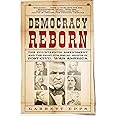
Customers who viewed this item also viewed
Editorial Reviews
Review
“The Civil War amendments redeemed the Constitution from the slavery concessions that had betrayed its preamble and perpetuated human bondage both North and South. Garrett Epps' new book is indispensable reading for Americans to know how our constitutional history has affected us all. A combination of the finest scholarship with unsurpassed insight.” ―William Van Alstyne, Perkins Professor of Law emeritus, Duke University; Lee Professor of Constitutional Law, College of William and Mary
“Garret Epps is one of our best legal historians, and he has produced a fascinating book on the creation and impact of the 14th Amendment. The people who wrote our Constitution were America's original Founders, but the amazing group that produced the 14th Amendment were like our second wave of Founders, helping our nation be reborn into the democracy it is today.” ―Walter Isaacson, author, Benjamin Franklin: An American Life
“It is best to be blunt. This is a thrilling book. Garrett Epps has woven together the tragic strands of America's effort to deal with the issue of race in the Constitution. Law, politics and statecraft clash in a great drama.” ―Anthony Lewis, author of Gideon's Trumpet
“Garrett Epps is one of the most fluid and accessible writers in the legal academy. Not surprisingly, he has written a marvelous overview of immediate post-Civil War politics that gave us the Fourteenth Amendment and, as importantly, a new understanding of the American experiment.” ―Sanford Levinson, University of Texas Law School, author of Our Undemocratic Constitution: How the Constitution Goes Wrong (and How We the People Can Correct It)
About the Author
Product details
- Publisher : Holt Paperbacks; First Edition (September 4, 2007)
- Language : English
- Paperback : 352 pages
- ISBN-10 : 0805086633
- ISBN-13 : 978-0805086638
- Item Weight : 1.1 pounds
- Dimensions : 6 x 0.8 x 9 inches
- Best Sellers Rank: #1,523,492 in Books (See Top 100 in Books)
- #1,039 in Legal History (Books)
- #1,492 in General Constitutional Law
- #2,216 in Civil Rights & Liberties (Books)
- Customer Reviews:
About the author

Discover more of the author’s books, see similar authors, read author blogs and more
Customer reviews
Customer Reviews, including Product Star Ratings help customers to learn more about the product and decide whether it is the right product for them.
To calculate the overall star rating and percentage breakdown by star, we don’t use a simple average. Instead, our system considers things like how recent a review is and if the reviewer bought the item on Amazon. It also analyzed reviews to verify trustworthiness.
Learn more how customers reviews work on Amazon-
Top reviews
Top reviews from the United States
There was a problem filtering reviews right now. Please try again later.
Most people imagine that democracy in America was something that came with the Revolutionary War. In reality, the founding fathers were deeply suspicious of the common people to make decisions regarding their political future. It would be a stretch to imagine that they foresaw the attack ad ridden political culture of today, but there is some merit in this thought. In the election of Thomas Jefferson in 1800, a mere 2% of the voters of the state of New York were permitted to vote. In 1828, only 7% of the population took part in the election of Andrew Jackson. Popular voting for president occurred in South Carolina only after the Civil War. Changes came about only as migration to west made some of the property requirements irrelevant, but up until Reconstruction, White Male America might enjoy political rights (the franchise) and civil rights (the right to marry, make contracts) although not everyone had those rights (and would not until the repeal of the poll tax in the 1960s! African Americans were prevented from registering to vote until the mid-1960s, and there are still election year purges of the voting rolls in doubtful states in election years) .
The status of slaves evolved rapidly from 1858-1865, when Dred Scott asserted that slaves were not citizens, but chattel and enjoyed no more rights than cattle to the idea that newly freed Africans Americans would have both political and civil rights. Like numerous controversies that would follow and would grow out of the 14 Amendment, the idea of black enfranchisement was no more popular with the majority of the population than gay marriage is today in some circles. The notion that former slaves might exercise the franchise was an abomination in many circles North and South. As usual, it took the work of a band of elites to insert into the constitution the notion that all people were equal in their relationship to the state, not a platitude, but a real controversial issue of the day.
It took men like Thaddeus Stevens, whose views of racial equality have largely become accepted at least in most quarters was regarded as a radical by the standards of his day. To understand just how out of step Stevens was with the attitudes of his day and up until the end of WWII, one need only look at his subsequent portrayals. Stevens inherently reasonable and farsighted position led to him being caricatured by subsequent historians and even D.W. in his racist epic, Birth of a Nation.
The villain of the book is the 17th president of the United States, Andrew Johnson, the alcoholic racist president, determined in the name of equality to keep former slaves in a new form of bondage. The author thinks it was a pity he was not impeached and I am inclined to agree with them. It would have been different for the people who would spin the history of Reconstruction in later generations to make Johnson into a hero had he been removed from office. The political ineptitude of Johnson should be celebrated, even if his ideas of making the United States a country fit only for white people are repugnant to all right thinking people. Had he not proven to be such a failure as a political leader the 14th Amendment would never have been passed. He solidified the ranks of the Republican Party better than any leader could have done and pushed them to greater progressive thought than would have been possible had he compromised. A lesson is here for politicians of both parties.
Getting the 14th Amendment passed involved a variety of political shenanigans by the radicals. Elections were declared invalid, southern representatives, who had opposed the United States only a year before, were not seated in congress and rebellious states were not allowed to be readmitted. Garratt Epps demonstrates the various parries and thrusts by Stevens and his allies, all to put forth the idea that all men were created equal and make it more than a slogan, but a genuine rebirth of freedom.
The authors of the 14th Amendment were flawed in the sense that they did not go far enough. Women were excluded and this served to drive a wedge between the two camps of the former abolitionist movement. Those who sought an equal roll just for the former slaves became divorced from their female emancipation allies.
Once the 14th Amendment was passed and even before people were horrified at the idea that people would be regarded as equal under the law and steps were taken to undermine its impact. As the memories of the Civil War retreated, people wanted to forget, they wanted sectional unity more than they wanted freedom. It really took the end of another war, WWII and a gradual discrediting of racist views for the Amendment to assume a larger role. Yep, this is what all those "liberal judges" cite when new freedoms are found in court cases and this is the amendment that gives all those people who are outraged by these decisions promoting equality under the law fits. May it long continue to do so.
However I graded it at 4 stars because I found it somewhat disjointed. I really wanted a book that focused on the crafting of the 13th, 14th and 15th amendment and while I recognize topics should be placed in context and also readily acknowledge that he does a great job of finding interesting things to present in that context, the narrative jumped back and forth across the years to an extent that disrupted my ability to follow the narrative I was looking for. Walt Whitman appears from time to time. Realistically, he has nothing to do with the narrative. By the second half of the book, the author should not be jumping back in time to the role of African American soldiers in the war. The second half of the book also introduces biographical sketches of Frederick Douglass and Robert Owen, the latter of which harks all the way back to his childhood in 1800 Scotland, and branches off into a sketch of a woman named Fanny who leaves America in the 1840s and has absolutely nothing to do with the postwar events but was apparently unusually sexy for the time. This kind of context was enjoyable early on but, as one nears the end of the book and is still looking for the narrative thread, I for one would have preferred some tighter editing and focus.
Also the book covered too familiar ground when it left the postwar era. For just one example, this reader does not need to have it proven over several pages that the Emancipation Proclamation did not spring solely from a sudden recognition of the moral injustice of slavery.
Also, I felt the prose tends to become hyperbolic and overstated at times. That is part of its vividness and others may find it enhances the reading. That tends to grate on me but it is just a matter of taste. Bottom line is, it is pretty good popular, nonacademic history reading.





